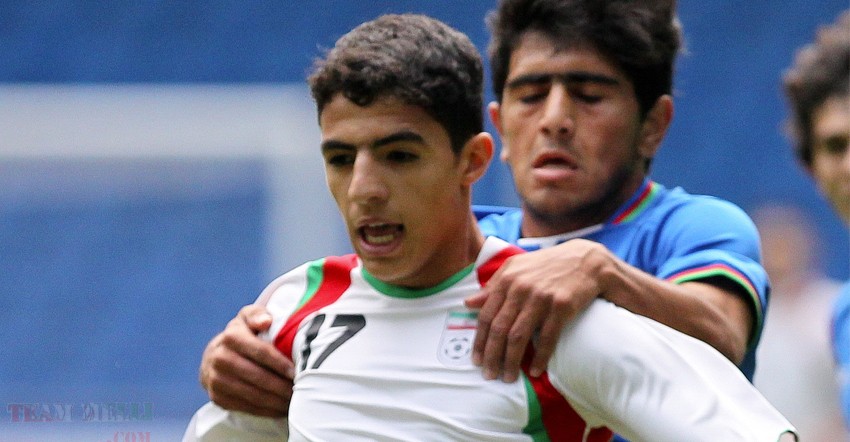The same old excuses revisted
[row]
[column size=”1/2″]
The coach of Iran’s U16 team, who failed to make it to the last four of the competition hence losing the chance to qualify for the FIFA U16 World Championship, provided the reason for his team failure after his return from Bangkok.
As a customary justification that is becoming a ritual in Iran’s football specifically after failures, Ghanbarpour complained about the lack of support and attention for his team. He said that all the teams that have reached this stage were fully prepared “We faced two of the strongest teams in the competition in Qatar and Saudi Arabia and beat them. We could have easily beaten Syria by 4 or 5 goals.”
“Against North Korea, I have analyzed the team but due to the weather and humidity , we could not perform to our best and were beaten in the penalty kicks. As you know, when it comes to the penalties it is really a matter of luck.”
The coach then complained about the status of the himself and other coaches at these ages level. Ghanbarpour complained about the low pay he is receiving and said that a coach loses focus and is stressed by such low pay rendering him inefficient while training young players!
“Japan , which is a class above the rest ibn Asian football was eliminated from the group stages in this competition. I don’t think they will go and sack him but he will start building the team from tomorrow for the next edition.” Ghanbarpour explained.
The beleaguered coach then directed his wrath at the clubs. “They pay a youth coach 5 million toman. That is not enough to run a car in town. These clubs want results and have no tolerance for rebuilding, they just want instant success. They spend billions of tomans on the senior teams, and with all due respect, you hardly see any good football from them in the league games. When it comes to lower age group teams, the management always claim that they are short of resources.”
While some of Ghanbarpour complaints are justified and to some extent acceptable, there is no denying that his team lacked tactics, teamwork and many ingredients of modern football. The only attribute they possessed to their advantage was physical strength and on occasions , individual tactics.
.[/column]
[column size=”1/2″]
Whether it is the fault Ghanbarpour himself or other club youth coaches, is another subject for debate, what matters is that the end product of the Iran U-16 teams that took part in the 2014 edition of the competition , was unattractive , outdated , tactically poor and individualist. It was not a great surprise to see the team fail against North Korea, a country which is still years behind Iran in football infra-structure. At least the Koreans played as a team
Ghanbarpour reminds us of the Iranian coaches’ mentalities, which has hardly changed. They seem to master producing excuses that have become so monotonous that the fans are beginning to tire from. Instead of admitting the team’s shortfall, which is so clear for anyone who knows about football, they always direct the blame elsewhere. Such attitude does not ender them with the fans. It is not surprising that a coach such as Carlos Queiroz , who practically has achieved nothing for Iran , is such popular character compared to the uninspiring Iranian coaches.
The football culture in Iran dictates the type of play. Most of these kids grow up playing their football in confined spaces in the alleys, side roads or if they are lucky, in a small area of a local park. Such restricted spaces prevents them adapting to teamwork, passing game and looking for the spaces. Iranian coaches, have not yet mastered the transition of this culture to the modern world football environment when these players play in regular fields.
Because of the way they have played football from the onset, Iranian players’ individualism will always be around and it sticks like a sore thumb in every league match. This age level (16 years) is probably the best opportunity for making the transition between street football and proper football. However, there is a learning curve that requires qualified, competent and capable coaches who can guide these talents in the transition and lead them to the top.
The reality is that, this age group will mostly get the left overs of coaches or those who do not make it at the senior level. This is the Achilles heel of Iran’s football at youth. It is regrettable because that country has enough talents, but talents without guidance means wastage. [/column]
[/row]

